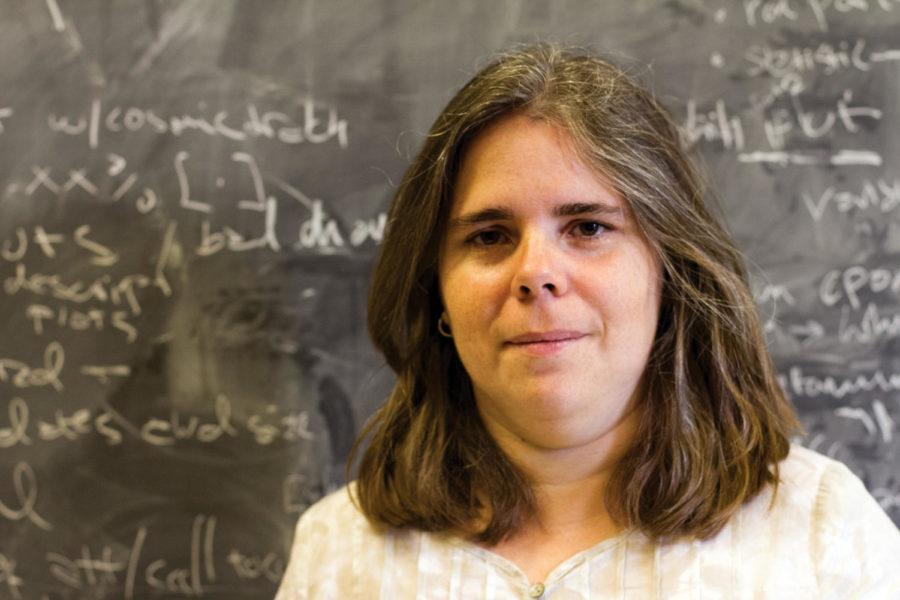Small things bring big rewards: Sanchez receives presidential award
Photo: Megan Wolff/Iowa State Da
Mayly Sanchez, assistant professor of physics and astronomy at Iowa State, recently received the Presidential Early Career Award for Scientists and Engineers. Sanchez works with neutrinos.
August 23, 2012
Mayly Sanchez, assistant professor of physics and astronomy at Iowa State, recently received the Presidential Early Career Award for Scientists and Engineers for her contribution to experimental neutrino physics research.
Sanchez formally received the award this summer in Washington.
“It’s quite an honor,” said Joseph Shinar, chairman of the department of physics and astronomy and U.S. Department of Energy Ames Laboratory associate. “The way I understand it, a special committee takes a look on behalf of the president, at what are called ‘early career awards.’ These awards are peer-reviewed grants given on a competitive basis, they are highly competitive, by various funding agencies.”
Sanchez said the award was an honor.
“I am very grateful to have been nominated to receive this award. I also feel that it is a recognition of the sacrifices that we as scientists and academics make,” Sanchez said. “We do it, of course, because we love what we do, but the fact that it is recognized at this level tells us that society thinks it is important, and we should keep doing it.”
Sanchez studies neutrinos, which are small subatomic particles that do not interact well and are difficult for scientists to detect, even when using state-of-the-art equipment. Trying to detect a neutrino is like trying to catch a grain of sand with a fishing net.
Neutrino research involves shooting large quantities of neutrinos underground and hoping the detectors catch at least a few. At any given moment, trillions of neutrinos are passing through the body, but they are unable to be detected.
Understanding neutrinos, San-chez said, is important to understanding the nature of the universe.
“Neutrinos, it turns out, are very interesting particles. They have no charge and have very, very tiny mass. Thus when they travel for a long distance they change properties that tells us fundamental things about the universe,” Sanchez said. “So by studying neutrinos, we can understand why we are all made of matter.”
In honor of her achievements, Sanchez met President Barack Obama after hearing a speech from him about the importance of science and engineering to the future of the nation.
“Once he was done with his speech, he came over and shook each of our hands. It’s kind of funny because you find yourself there and you’re a little bit star struck. After you shake his hand, you say who you are and where you’re from; it’s like you can’t do anything,” Sanchez said. “You could see everyone’s faces; you have just seen someone very important. It was quite an experience.”







